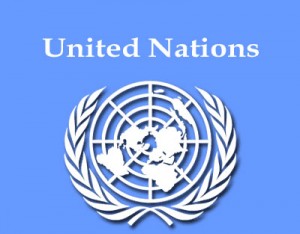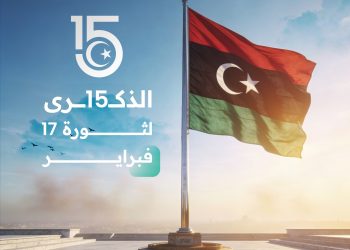By Sami Zaptia.
London, 15 March 2016:
The 215-page final report of the . . .[restrict]UN Panel of Experts on Libya to the President of the Security Council was released recently. The report provided grim reading on the situation in Libya.
It reports on the continued lack of security, the security vacuum, the strength of ISIL, banditry, human rights violations, armed group clashes, continued regional interference, continued illicit arms trade in and out of Libya, the continued payment of militias including spoilers of the peace plan and those with links to terrorist groups.
Here is its two-page summary.
‘‘Five weeks after the signing of the Libyan Political Agreement on 17 December 2015, uncertainty remains around the endorsement of the Government of National Accord by the House of Representatives and its establishment in Tripoli, highlighting the divisions that have threatened the United Nations-brokered political dialogue throughout 2015.
In support of the Government of National Accord, the Security Council adopted resolution 2259 (2015), by which it explicitly delegitimized all parallel institutions falling outside the Libyan Political Agreement, thereby providing the Panel of Experts on Libya with a clearer benchmark against which to report on acts undermining the political transition. The Panel has identified groups and individuals having consistently refused to engage in the political dialogue in 2015. While the leadership of the General National Congress boycotted several meetings of the political dialogue and prevented any vote on it from being held, the leadership of the House of Representatives has played an increasingly negative role since October 2015.
Meanwhile, armed conflict persists, resulting in a dire humanitarian situation. In Tripoli, clashes between armed groups have been occurring on an almost weekly basis, especially in the second half of 2015. Whereas initially clashes continued between the two major military alliances in Libya, the Libyan National Army and Operation Fajr, most of the fighting later became a mix of revenge attacks, banditry and infighting within Operation Fajr. The number of combat incidents in the east remains very high. In Benghazi, the Libyan National Army has continued its operations against the Benghazi Revolutionaries Shura Council and affiliated groups, which include United Nations-listed terrorist entities. Fighting has spread to new cities, including Kufrah in July 2015 and Ajdabiya in December 2015. Local conflicts in the south have been further exacerbated by regional interference and competition between the two Governments to build alliances with local groups and recruit foreign combatants.
The political and security vacuum has been further exploited by Islamic State in Iraq and the Levant (ISIL), which has significantly expanded its control over territory. In Sirte, ISIL successfully recruited from among communities marginalized since the ousting of the Qadhafi regime. In Tripoli and Sabratah, it increased its operational capacity through local recruitment and reinforcements with foreign fighters. While ISIL does not currently generate direct revenue from the exploitation of oil in Libya, its attacks against oil installations seriously compromise the country’s economic stability. Libyans have increasingly fallen victim to the terrorist group’s brutalities, culminating in several mass killings.
Violators of human rights and other criminals continue to act with total impunity, especially in the absence of a formal security sector and in the light of international hesitancy to intervene, as shown by the lack of new investigations by the International Criminal Court or of any new sanctions designations since 2011. Various armed actors are de facto filling some of the vacuum, resulting in arbitrary detention and severe abuses in prisons throughout Libya.
The continuation of armed clashes and the expansion of ISIL have led to an increase in demand for military materiel. Illicit transfers to State and non-State armed actors continue, including with the support of some Member States, mirroring regional rivalries that have been fuelling the instability.
The Libyan market remains attractive to brokering companies that do not appear to be deterred by the arms embargo. Most negotiations concern surplus stocks, i.e. materiel that is readily available from wholesalers in Eastern Europe.
The continuous violations of the arms embargo are having a negative impact on the security situation in Libya and its political transition: better-equipped armed actors may be less inclined to agree to ceasefires or to accept the authority of the future Government of National Accord and its security arrangements.
The risk of diversion and misuse of materiel will remain very high, regardless of the formation of the Government of National Accord. The current arms embargo provisions, which allow exemptions for the Government, should remain in place and be enforced, so as to prevent non-State actors from procuring materiel. The future Government of National Accord should have a single procurement channel accompanied by substantive and verifiable arms control measures to avoid diversions inside and outside the country. Libya remains a source of logistical support and arms for armed groups, including terrorist groups, in the region.
Regarding the financing of Libyan armed groups, government salaries are continuing to be paid to enlisted combatants, regardless of their human rights record or their ties with spoilers or terrorist groups. Armed groups and criminal networks have further diversified their sources of financing, including through kidnapping and the smuggling of migrants, oil derivatives and subsidized goods, as well as profits from foreign currency exchange schemes.
The Libyan financial system has been weakened by the competition between the two rival Governments over the control of State financial institutions. The policies of the Central Bank in 2015 reflected its physical proximity to Operation Fajr and the General National Congress, showing a more lenient attitude towards the priorities of Tripoli. Subsequently, the interim Government stepped up its attempts to gain control of the financial system, further undermining the unity of the institution. The current state of the financial system is no longer tenable and it urgently needs oversight from, and protection by, the Government of National Accord.
While the duplication of the National Oil Corporation and the control of oil facilities by armed groups have had a significant impact on the country’s primary source of revenue, no illicit export of crude oil has ever been reported by the Libyan authorities to the Security Council Committee established pursuant to resolution 1970 (2011) concerning Libya, nor has any evidence of such exports been provided to the Panel. The risk of illicit exports and of misappropriation of Libyan oil revenue persists, however, and the provisions of resolution 2146 (2014) are not implementable.
Lastly, sanctions adopted in 2011 against individuals from the Qadhafi regime continue to be breached. Large amounts of hidden assets remain unfrozen and the travel ban has repeatedly been violated, indicating that the measure continues to be ignored by some Member States and listed individuals. With regard to the assets of designated Libyan entities, while they should remain frozen, their value should be protected against deterioration’’. [/restrict]







